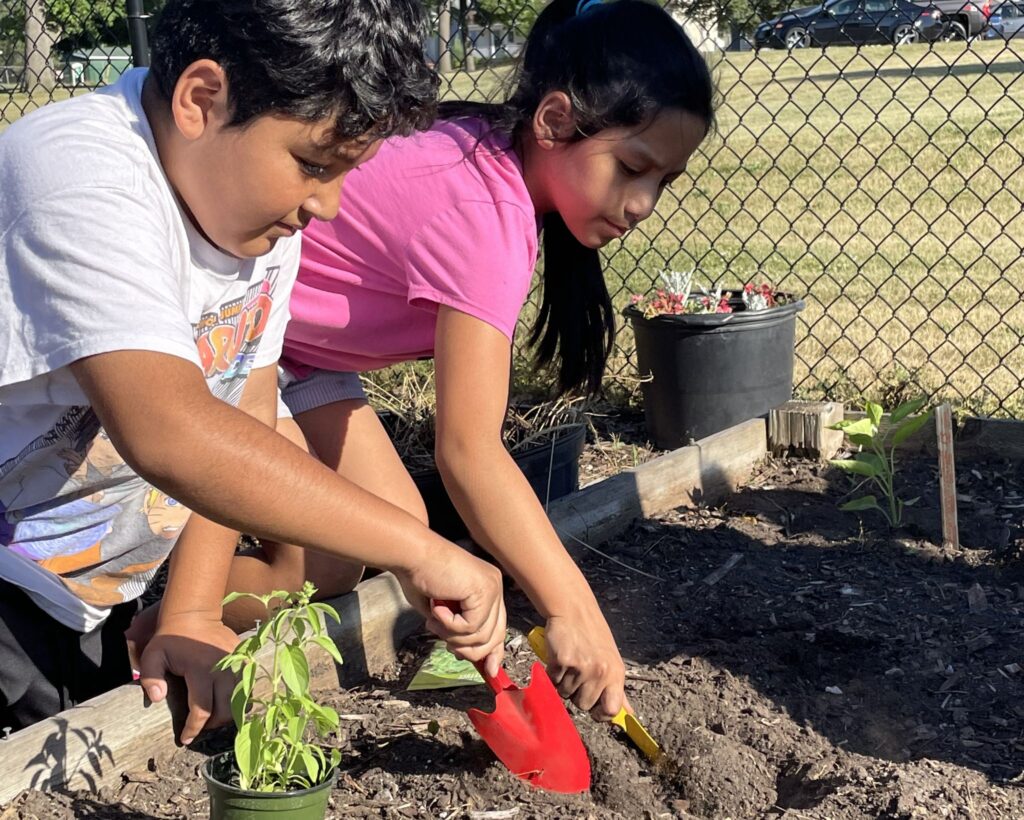While we’ve been a long-time education funder, our thinking about what it means to support children and education has continued to evolve over the years. We’ve historically invested in curriculum and the preparation of highly effective teachers and school leaders– and we still believe those things are important. However, we also know that if children are to thrive at school, we need to invest in whole families, removing barriers created through systemic inequities that have prevented students from being able to come to school ready to learn. Therefore, we are now looking at our work through the Aspen Institute’s 2-Gen framework which centers the family unit by supporting children and their caregivers simultaneously to create a legacy of educational success and generational economic prosperity.
In our work, this has led us to support initiatives like the Early Learning Neighborhood Collaborative (ELNC)’s Empowering Parents Impacting Children (EPIC) program, which utilizes Family Coaches to connect parents and caregivers to existing resources in the community to ensure household basic needs are met so caregivers have the resources and bandwidth to act as their child’s first and most important teachers. Since launching EPIC in 2012, the program has served hundreds of children and families, making connections to support food and clothing, housing, transportation, financial, and medical needs while increasing social capital. The framework has been so successful ELNC has embedded EPIC in all of its early childhood education programming.
Realism is Loyalty recently adopted a 2-gen approach, combing its Each One Teach One Mentoring Program with its Relatable Parenting Programming, recognizing that in order to best support youth, entire family units must be deeply invested in the work. Each One Teach One began as a 12-week pilot for high-risk youth who had engaged with the court system and has shifted to a nine-month comprehensive program providing group activities, academic tutoring, individual and family therapy, parent support groups, and community service activities to engage family units and address generational trauma to disrupt cycles of disfunction without blame.
By embedding Relatable Parenting into Each One Teach One, families collectively wrestle with multi-generational trauma that has resulted in a lack of communication, empathy for one another, and in some cases physical, sexual, or emotional abuse. Families work to improve their communication, develop health boundaries and structures within their family unit, and change patterns of behavior that have resulted in negative life consequences. Realism is Loyalty approaches the work through lived experience and evidence-based practices centered on empathy to address both current issues facing youth and long-standing generational challenges to put families on a better path forward together.
Streams of Hope also utilizing a multi-generational approach through its Circles GR Program, which empowers low-income families to exit poverty by engaging women (Leaders) in work to help them achieve financial security by developing financial literacy, job readiness, and networking and leadership skills in partnership with Allies who support, assist and hold Leaders accountable to their goals. Children of Leaders and Allies engage in similar age-appropriate programming to build relationships across socioeconomic divides and learn skills that will help them achieve financial security as adults.
FitKids360 utilizes a 2-gen approach to combat childhood obesity by empowering whole families to take ownership of their health through hands-on training, community resources, and supportive relationships. FitKids is a seven-week healthy lifestyle program for children ages 5-17 and their parents or caregivers which utilizes the fitness program to address disparities in health outcomes, especially for children of color. Children and caregivers are required to attend the program together as healthy lifestyle choices for kids are often made at the family level. Since its Founding, FitKids has served 1,500 families in Kent County
We’re excited to continue exploring what it means to support whole families in an effort to ensure students have the needed supports to thrive in the classroom and in life.
